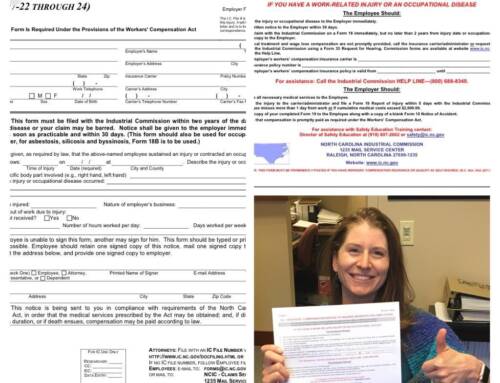Today’s post comes from Kristina Thompson at the Jernigan Law Firm.
How long will the insurance company continue to pay for my medical treatment for my North Carolina workers’ compensation injury?
Did you know that in North Carolina injured workers can apply for lifetime medical treatment for an accepted workplace injury?
However, there’s one BIG caveat in order to qualify. The injured worker either must continue to get medical treatment through workers’ compensation so that there’s no two-year gap between payments, OR s/he must file a Form 18M (Application for Additional Medical Treatment) with the North Carolina Industrial Commission within two years of the last date of medical or disability payment. It is a tricky and commonly misunderstood situation.
The typical scenario where this comes up is when an injured worker returns to work and accepts the rating value for their injury. The injured worker now has two years from the last day the receive the final rating payment check or two years from the last day workers’ comp pays for medical treatment to seek additional treatment or file a Form 18.
Many injured workers get confused because the treating doctor sometimes mentions to the injured worker that s/he may need surgery (or other treatment) in the future but wants the injured worker to see how long they can get by before seeking surgery (like a total knee or hip replacement). This can be dangerous for a workers’ comp case if the injured worker takes too long to seek treatment or file a Form 18M. If two years and one day passes from the last time the insurance company pays medical or disability treatment, it will be too late for the injured worker to request that the insurance company pay for the treatment. This can be very costly for the injured worker. It can also be complicated if the injured worker mistakenly puts workers’ comp related bills on his or her personal insurance.
In most situations, the best course of action is simply to have the injured worker file a Form 18M with the Industrial Commission to make sure their future medical treatment is covered under workers’ compensation. Injured workers should also be careful to make sure medical providers are properly billing the workers’ compensation insurance company for treatment and NOT the injured worker’s personal health insurance company. This can create confusion and potentially serious legal problems down the road.







